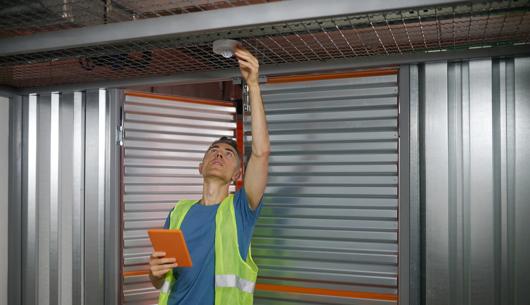New year, new Brexit transport rules
From 1st January, new import rules come into effect, with potential for significant delay, disruption and cost for importers and exporters.
From 1st of January new import rules on EU goods entering Great Britain come into effect, with the potential for significant delay, disruption and cost for importers and exporters.
Importers
Guidance issued by HM Revenue and Customs confirms that the changes that came into force on 1 January 2022 for imports from the EU (except Ireland) to Great Britain include:
- full customs import declarations are needed for all goods at the time the importer or their courier/freight forwarder brings them into Great Britain (previously HMRC allowed for a 175-day delay on companies submitting customs declarations; from January 1, 2022, the ability to delay submissions will end)
- customs controls at all ports and other border locations
- importers may need a suppliers’ declaration proving the origin of their goods (either UK or EU) if they are using the zero tariffs agreed in the UK’s trade deal with the EU
- commodity codes, which are used to classify your goods for customs declarations, are changing.
Exporters
HMRC has also published information for exporters which outlines the technical processes for exporting goods from GB to the European Union from 1 January 2022.
A key message is that GB exporters need to ensure they identify the port through which their goods will leave GB – as the process to be followed will vary port-by-port.
Processes will vary depending on:
- whether the port is using government IT platform GVMS (Goods Vehicle Movement Service) or inventory linking systems
- whether export declarations are being lodged on CHIEF or CDS customs declaration systems.
HMRC has helpfully provided a list of ports using the Goods Vehicle Movement Service.
Changes to come
HMRC confirms that further changes will be introduced from July 2022, which will include:
- requirements for full safety and security declarations for all imports
- new requirements for Export Health Certificates
- requirements for Phytosanitary Certificates
- physical checks on sanitary and phytosanitary goods at Border Control Posts.
Certification and physical checks will be introduced for products of animal origin, animal by-products, plants and plant products in phases from July 2022.
- Phase 1 – 1 July: high-risk animal-by products, all regulated plants and plant products, all meats and meat products, high-risk foods not of animal origin
- Phase 2 – 1 September: dairy products
- Phase 3 – 1 November: all other regulated products of animal origin including composite and fish products
This will mean that for some products three separate checks will be needed;
- An electronic document check before the product starts its journey
- an identification check on the seal applied to the consignment prior to departure, and
- a third physical check when it arrives must all take place, with country of origin certificates, including from suppliers, if required.
Products affected are animal products, including meat, milk, eggs and honey, which must include a “Products of Animal Origin” certificate. Similarly, fruits, vegetables and flowers – and anything else plant-based – must also have a certificate of origin.
In July 2021 Marks and Spencer stated that it had been forced to employ 14 full-time vets, "simply ticking boxes and filling out forms", in order to certify its products for export to Northern Ireland where these requirements already apply.
Ports in a storm
HMRC has advised that checks on imported goods will be carried out at designated Border Control Posts (BCPs) or Control Points, potentially leading to far longer delays.
Not all GB ports have BCPs, and so for goods moving through Dover, Eurotunnel or Holyhead, the declarant will need to tell their haulier to present the goods at the nearest inland border facility.
For goods moving through Liverpool, Heysham, Milford Haven/Pembroke or Fishguard, the declarant will need to tell their haulier to present the goods at the port’s designated customs checking facility.
HMRC have recommended that exporters work with their haulier to understand what paperwork may be needed ahead of any physical inspection.
It is unclear how strictly the new border checks will be applied, with some commentators reporting a slow ramp up, but others suggesting that from January 1 HMRC will no longer be taking a relatively light touch approach to the enforcement of penalties for incorrect documentation.
Philip Rycroft, who was permanent secretary at the Department for Exiting the European Union (DExEU) between 2017 and 2019, has been widely quoted as suggesting many British businesses may decide it “is simply not worth the hassle” and “give up importing” as a result of the new rules.
If you need assistance with your compliance with new trade rules please contact Andrew Hopkin at Browne Jacobson








































